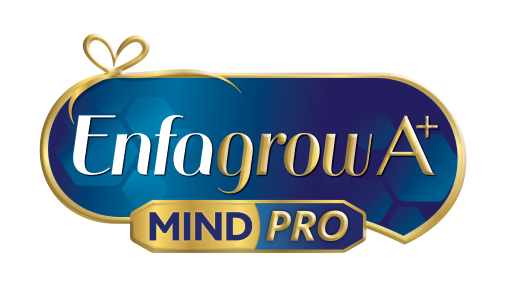
What Is a Healthy Diet for Pregnancy?
You often hear the advice to eat a healthy diet during pregnancy. But what exactly does that mean—where do you start? These guidelines will help you choose what to eat during pregnancy.
You have lots of good reasons to eat well when you’re pregnant. Above all, your developing baby depends on you for the

nutrients to fuel her mental and physical development. Eating well gives you needed energy and helps you maintain good overall health, boosting the odds of a healthy delivery. And a good diet now will make it easier for you to be at your best when introducing your developing baby to the world.1 But what is a healthy prenatal diet?
A healthy prenatal diet is just a little more energy. It’s a myth that you need to eat twice as much food. If you’re carrying one developing baby, you really only need about 340 extra calories (about the amount in 4 ounces of 1% milk and half a peanut butter sandwich) per day in the second trimester. In the third trimester, aim for 450 extra calories per day (equal to 1 ounce of cheddar cheese, 8 whole wheat crackers, 1 cup grapes, and 6 ounces of 1% milk). Make the calories you eat count by favoring fruits, vegetables, whole grains, and lean protein and limiting sugar, sodium, and certain fats (saturated fats that come mainly from animal sources and trans fats that come from partial hydrogenation). Smart nutrition strategies can help you stay within a healthy weight range (determined by your doctor), to minimize such problems as high blood pressure and preterm birth.1-7
A healthy prenatal diet is full of important nutrients. Know that your growing baby can benefit from these important nutrients, which come from the foods you eat and the supplements you take.
-
DHA: A type of omega-3 fatty acid called docosahexaenoic acid (DHA), that is important to help support your developing baby’s brain and visual development.8,9 Fatty fish and prenatal supplements are good sources to help reach the expert-recommended amount of 200 milligrams daily while pregnant.4, 8
-
Folic acid: This B vitamin, also called folate, helps support healthy neural tube development in your developing baby.10 It’s found in enriched grain products, like bread and cereal; dark green vegetables; and prenatal supplements. Your pregnancy goal: 600 micrograms a day. 1, 3, 4, 10-12
-
Iron: Your iron needs increase when you are pregnant. That’s because iron is part of hemoglobin, which helps red blood cells transport oxygen throughout your body for you and your developing baby. Iron also supports your developing baby’s growth, psychomotor and mental development.14,15 To reach the goal of 27 milligrams a day, look to lean red meat, poultry, iron-fortified cereal, beans, eggs, sardines, dark leafy vegetables, and your prenatal supplement. 1, 3, 4, 13,16
-
Calcium: This mineral helps build b bones and teeth in both you and your developing baby.3,4 Aim for 1,000-1300 milligrams per day, depending on your age. Dairy products are the best source. You can also get calcium by eating dark leafy greens and through your prenatal supplement. 1, 3, 4, 11
-
Vitamin D: This vitamin benefits your developing baby’s bone health.3,4 It’s found in milk; fatty fish, like salmon; and prenatal supplements. Experts recommend 600 IU daily while pregnant. 3, 4
A healthy prenatal diet can be supported by a prenatal supplement. It can be difficult to reach recommended amounts of nutrients through diet alone. That’s where a prenatal supplement comes in to ensure that you get important nutrients during pregnancy. Most prenatal supplements have folic acid and iron, but check your supplement’s label to make sure that it includes other important prenatal nutrients, like DHA and vitamin D. 1, 3, 4, 11
A healthy prenatal diet is safe. Minimize your risk of getting sick or endangering your developing baby by avoiding certain foods.
-
Some fish: Fish is great for you now. But skip swordfish, shark, and king mackerel, and limit albacore tuna to once a week; these varieties may contain high levels of mercury. Eat up to 12 oz a week of a variety of fish and shellfish that are lower in mercury such as shrimp, canned light tuna, salmon, Pollack, and catfish. 3, 4, 11, 17
-
Unpasteurized milk and soft cheeses: Pregnant women are at much higher risk of listeriosis, a bacterial illness that can harm your developing baby. So it’s smart to avoid soft cheeses such as Brie, feta, and blue cheeses unless you can find a version that’s labeled as pasteurized. 3, 17
-
Raw or undercooked eggs, meat, and seafood: Avoid raw sushi, but cooked preparations are OK. 3, 17
-
Alcohol: No level has been proven entirely safe. 4, 17
-
Too much caffeine: Experts recommend limiting yourself to less than 200 milligrams (one 12-ounce cup of coffee) a day. 3, 11, 17
A healthy prenatal diet is filled with water bottles. Experts recommend drinking 10 to 12 cups (3 liters) of water a day during pregnancy. 18
References:
- Eating Right During Pregnancy – MedlinePlus (http://www.nlm.nih.gov/medlineplus/ency/patientinstructions/000584.htm)
- Healthy Weight During Pregnancy – American Academy of Nutrition and Dietetics (http://www.eatright.org/Public/content.aspx?id=10933)
- Nutrition During Pregnancy – ACOG (http://www.acog.org/Patients/FAQs/Nutrition-During-Pregnancy)
- Vitamins and minerals during pregnancy – March of Dimes Foundation. http://www.marchofdimes.org/pregnancy/vitamins-and-minerals-during-preg….
- USDA Nutrient Database Food List (http://ndb.nal.usda.gov/ndb/)
- Saturated fat – American Heart Association (http://www.heart.org/HEARTORG/GettingHealthy/NutritionCenter/HealthyEat…)
- Trans fat – American Heart Association (http://www.heart.org/HEARTORG/GettingHealthy/NutritionCenter/HealthyEat…)
- Innis SM. Dietary (n-3) fatty acids and brain development. J Nutr. 2007;137:855-859.
- Omega-3 fatty acids – March of Dimes http://www.marchofdimes.org/pregnancy/omega-3-fatty-acids.aspx.
- Greenberg JA, Bell SJ, Guan Y, Yu YH. Folic Acid supplementation and pregnancy: more than just neural tube defect prevention. Rev Obstet Gynecol. 2011 Summer;4(2):52-9.
- Healthy Eating Basics – Mayo Clinic (http://www.mayoclinic.org/healthy-living/pregnancy-week-by-week/in-dept…)
- Folic Acid – MedlinePlus (http://www.nlm.nih.gov/medlineplus/ency/article/002408.htm)
- Iron – NIH. (http://ods.od.nih.gov/factsheets/Iron-HealthProfessional/)
- Chang S, Zeng L, Brouwer ID, Kok FJ, Yan H. Effect of iron deficiency anemia in pregnancy on child mental development in rural China. Pediatrics. 2013 Mar;131(3):e755-63.
- Anett Nyaradi, Jianghong Li, Siobhan Hickling, Jonathan Foster, Wendy H. Oddy. The role of nutrition in children's neurocognitive development, from pregnancy through childhood. Front Hum Neurosci. 2013; 7: 97.
- Iron During Pregnancy – Cleveland Clinic. (https://my.clevelandclinic.org/health/diseases_conditions/hic_Am_I_Preg…)
- Foods to Avoid – Mayo Clinic. (http://www.mayoclinic.org/healthy-living/pregnancy-week-by-week/in-dept…)
- Daily Water Recommendation – IOM (http://www.iom.edu/~/media/Files/Activity%20Files/Nutrition/DRIs/DRI_El…)

